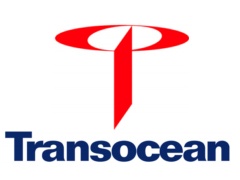Transocean settlement deal a boost for Gulf restoration efforts

The Swiss corporation that owned the Deepwater Horizon drilling rig that BP was leasing when its Macondo well blew up off the Louisiana coast in April 2010 has pleaded guilty to an environmental misdemeanor and agreed to pay $1.4 billion in civil and criminal fines and penalties for its role in the disaster, which killed 11 workers and spilled 200 billion gallons of crude oil into the Gulf of Mexico.
Most of the money will go to fund environmental restoration efforts in the region.
As part of the plea deal announced by the U.S. Justice Department on Jan. 3, Transocean will pay $400 million in criminal fines and penalties and cooperate with the federal government's ongoing criminal investigation. The company will also pay $1 billion in federal Clean Water Act civil penalties for its role in the disaster and implement court-enforceable measures to improve safety and emergency-response operations. The civil settlement is subject to a public comment period and final court approval.
Transocean admitted in court that its Deepwater Horizon crew members, acting at the direction of BP company leaders, were negligent in failing to investigate signs of serious problems with the Macondo well.
"This resolution of criminal allegations and civil claims against Transocean brings us one significant step closer to justice for the human, environmental and economic devastation wrought by the Deepwater Horizon disaster," U.S. Attorney General Eric Holder said.
Environmental and community advocates in the Gulf praised the settlement for directing funds to restoration efforts in the region. Seven major environmental and community groups that work in the Gulf -- Environmental Defense Fund, Greater New Orleans Inc., National Wildlife Federation, National Audubon Society, The Nature Conservancy, Oxfam America and Ocean Conservancy -- released a joint statement thanking the DOJ for its leadership in securing the deal.
"This is a great day for the Gulf environment and the communities that rely on a healthy ecosystem for their livelihoods," it said.
Of the $400 million in criminal fines to be collected from Transocean, $150 million will go to the National Fish and Wildlife Foundation over a three-year period to fund natural resource and coastal habitat restoration, including restoration of Louisiana's hard-hit barrier islands. An additional $150 million will go to the National Academy of Sciences over five years to fund research on improving oil spill prevention and response efforts in the Gulf.
The record $1 billion in civil penalties Transocean has agreed to pay under the Clean Water Act are covered by the Resources and Ecosystems Sustainability, Tourist Opportunities and Revived Economies of the Gulf Coast States Act of 2012, or RESTORE Act. Under that law, passed by Congress last June with broad support from regional governments and grassroots advocates in the Gulf, 80 percent of Clean Water Act fines related to the disaster will be directed to the region for restoration efforts. That in turn will provide an economic boost for a region with high levels of poverty and entrenched barriers to upward economic mobility, as Oxfam research has shown that every $1 million invested in environmental restoration can create between 17 and 39 jobs.
"This is a positive step forward, but it is also a time to reflect on the 11 men who lost their lives aboard the Deepwater Horizon," Transocean said in a statement. "Their families continue to be in the thoughts and prayers of all of us at Transocean."
The agreement stems from ongoing litigation against the companies involved in the Deepwater Horizon disaster, which in addition to oil giant BP includes Halliburton as well as Texas-based Anadarko Petroleum, one of the world's largest publicly-traded oil and gas exploration and production companies. A civil trial related to the disaster is set to begin late next month.
In November, BP reached a record criminal settlement with the federal government, agreeing to pay $4 billion to the Department of Justice and $525 million to the Securities and Exchange Commission. The U.S. government also temporarily banned it from new federal contracts.
Tags
Sue Sturgis
Sue is the former editorial director of Facing South and the Institute for Southern Studies.
